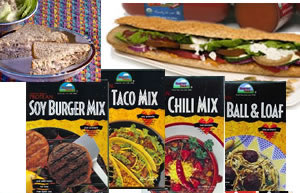
Soy foods and soy protein continue to be supported by science as health-promoting and cancer-fighting. A new study, Proteins in Soy Might Have a Higher Role in Cancer Prevention than Previously Expected, was published just a couple of weeks ago in the science journal, Nutrients. The study finds that it is the protein components of soy that contain anti-cancer MMP-9 inhibitors. The authors note that these components persist even after cooking, a fact that they indicate "can be of significant importance for cancer preventive diets, particularly considering the increasing use of soy proteins in food products" such as meat substitutes, protein bars, etc.
In other good news, a Tufts University study reported last week that breast cancer patients who eat the most soy foods are the most likely to survive, and that soy consumption in conjunction with an overall healthy diet may prevent some types of breast cancer altogether. Co-author Dr. Omer Kucuk stated, "We now have evidence that
soy foods not only prevent breast cancer but also benefit women who have breast cancer. Therefore, we can recommend women to consume soy foods because of soy's many health benefits. In general, soy foods are considered among the healthiest for human consumption."

Men's health concerns due to excess body fat abound, including increased risk for diabetes, hypertension, heart disease, and some forms of cancer. Plant-based eating is part of the solution: The largest ever study including vegans, vegetarians, and various omnivores (over 83,000 Americans in total) found that only the vegans had a healthy body mass index (BMI) on average. Even the average vegetarian was overweight, though not so excessively as the average omnivore.
Simply put, most Americans now have a weight problem, and men tend to store their body fat around their midsection, which studies find is the most unhealthy area to hold excess fat (even for those considered to have a normal BMI). A healthy plant-based, whole-food diet along with regular exercise is the most effective way to shed
excess body fat. Unlike animal-based foods, plant-based whole foods such beans, nuts & seeds, whole grains, and fruits & vegetables are fiber-rich and nutrient-dense, providing satiety before one has overdone the calorie intake. In contrast, whole animal foods (meat/eggs/dairy) are completely devoid of dietary fiber and are often high in calorie-dense saturated fat. When such animal foods are added to a diet that also includes processed flours, and added sugars and fats, it's a recipe for disaster.
Unfortunately, men are still far less likely than women to choose a plant-based diet -- only 20-25% of vegans in the U.S. are male -- although it is encouraging that the numbers are on the rise. Increasing age need not, and should not, be accompanied by an increasing waistline, yet that has become the norm. Staying lean throughout one's lifetime improves one's likelihood of a longer healthspan, which is a wholly worthwhile goal for all fathers!

What food has been found to lower premenopausal breast cancer risk when consumed throughout adolescence and adulthood? Well, soy, of course. The Shanghai Women's Health Study remains one of the most referenced by
scientists, though apparently it is not read by today's numerous "Paleo" bloggers and anti-soy alarmists sometimes posing as experts. The objective of the study published by The American Journal of Clinical Nutrition with respect to breast cancer was to evaluate the association of adolescent and adult soy food consumption with cancer risk in a cohort of over 73,000 Chinese women participants. The finding was a strong inverse relationship between soy intake and the occurrence of premenopausal breast cancer. That is, women who consumed a high amount of soy foods consistently during adolescence and adulthood had a substantially reduced risk of breast cancer. (No significant association with soy food consumption was found for postmenopausal breast cancer.) The soy foods consumed included soy milk, tofu, fresh soybeans and dried soybeans, among other soy products.
Why do soy foods lower breast cancer risk? It's likely because their natural isoflavones compete with endogenous estrogens for an individual's estrogen receptors, minimizing the chance of developing a hormone-related cancer. Hence, the authors explain that soy phytoestrogens are protective largely because they are anti-estrogenic in premenopausal women. Enjoy the soy.
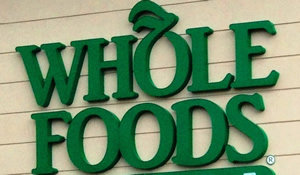
For over a decade, poultry scientists and animal welfare advocates have detailed the problems with the industrywide practice of selectively breeding broiler chickens. Generation after generation of breeding the largest and fastest-growing chickens has produced animals so heavy that inherent suffering due to joint problems is very common. Today, chickens' bodies are so large relative to their legs that many cannot comfortably support themselves, and some cannot even walk.
Whole Foods has finally acknowledged the problem, referring specifically to statements by the Global Animal Partnership (a nonprofit set up by Whole Foods to create animal welfare standards for their suppliers). Because there are "unresolvable welfare issues inherent in fast-growing breeds of chicken," Whole Foods will require their breeders to provide only slower-growing chicken breeds by 2024. Eight years from now is far into the future, but other supermarket chains have ignored the issue altogether.
Of course, Whole Foods' chicken sales comprise a tiny fraction of the sales total in the USA, almost all of which is from these genetically selected heavy birds. Animal suffering is part of the true price paid for inexpensive chicken meat across our country, and unfortunately that is unlikely to change anytime soon.

It appears so. At his Friday, Dec. 18 press conference, President Obama championed the Trans-Pacific Partnership trade agreement with a particular emphasis on increased exports of American beef and pork. While meat consumption is in decline in the USA (for multiple reasons, such as environmental impact, human health, and animal welfare), meat demand worldwide is clearly on the rise. But meat production is a highly inefficient use of finite resources, including fossil fuels and fresh water, relative to vegan alternatives comprised of legumes and whole grains. In terms of greenhouse gas emissions, red meat is the worst of all food categories, and an expert study concluded that meat consumption is worse for the environment than driving your car to work. Add to that
the fact that red meat is also categorized as a probable carcinogen by the WHO/IARC. Promoting increased trade in meat to feed the demands of short-sighted consumers abroad and to line the pockets of US industrial meat producers seems to be antithetical to President Obama's stances on global warming and human health.
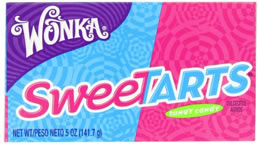
With several vegan-friendly Halloween candy lists now circulating online, it is perhaps overlooked that most recommendations contain multiple artificial chemical ingredients that were extensively tested on animals. These absolutely unnecessary ingredients are very much akin to third-party animal-tested ingredients included in cosmetics or personal care products that often result in vegans (and even non-vegans) boycotting entire brands. If it isn't OK to buy make-up or shampoo containing laboratory derived, animal-tested ingredients, then why would it be OK to buy candy containing laboratory derived, animal-tested ingredients, such as artificial colors, sweeteners, etc.? The simple solution is to stick with all-natural vegan candies and treats.

Yes, this political party exists today. The Humane Party is not simply a symbolic party. It is a national political party that is registering voters right now and will soon be running candidates to win elections, not merely to make a statement or raise awareness. Far from a one-issue party, the Humane Party platform addresses gender equality, animal rights and welfare, balanced budgets, criminal justice reform, energy policy, environmental sustainability, education, national security, and other issues. All Humane Party candidates, officers, and Board of Directors
members must execute the Humane Party Oath, one notable provision of which is a commitment to vegan choices in food, clothing, and entertainment.
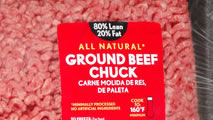
Thanks to deceptive labeling practices authorized by the USDA, many consumers believe that the "lean" ground beef patties advertised in their friendly supermarket flier are a sensible dietary choice. After all, if they're composed of "80% lean beef" then these burger patties will be only 20% fat, right? Nope, that's the deception. Unlike other foods (including all your favorite vegan meat substitutes), meat sellers are permitted to label fat content as a percentage of total weight, although that total weight actually includes plenty of zero-calorie moisture, and even though each gram of fat contains more than twice the calories of a gram of protein or carbohydrates (9 calories vs. 4 calories) . Of course, meat has no carbs -- recall from the Atkins Diet? -- so an unsuspecting consumer might infer that the advertised 80% lean beef is a hefty 80% protein and 20% fat. But in fact, protein makes up only 41% of the total calories and fat makes up all of the remaining 59%, including a high amount of saturated fat (which raises LDL blood cholesterol), and some dreaded trans fat too. Most consumers are not nutritionally savvy, and these longstanding meat labeling practices might be causing consumers to make some poor dietary choices that they otherwise would be less likely to make.
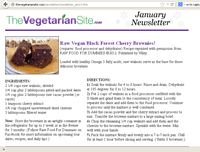
Access our monthly email newsletters in their original form back to January 2013. There's a wealth of tasty vegan recipes, news summaries of import, and much more. Simply click here or access our Newsletters link down the left side of our front page anytime. If you wish to subscribe to our monthly e-newsletter, send a blank email to subscribe@TheVegetarianSite.com

If you're among the 40% of Americans who begin their holiday shopping in October, you'll be happy to hear about our new 90-day return policy. Order today and there's still plenty of time to return or exchange any items after the holidays. So it's already a great time to buy that perfect gift, such as fair labor men's or women's vegan shoes, belts, bags/accessories, and clothing.
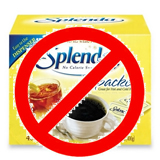
A number of online stores are advertising food items as vegan or including them in their vegan sections, even if these foods contain sucralose or Splenda. Sucralose was created in the laboratory and patented in 1976. The major brand name of this artificial sweetener is Splenda, although now that it is off patent, several other brand names have emerged, and many food products simply list the generic sucralose in the ingredients. (Since pure sucralose is so sweet, it usually ends up at the end of the ingredient list.) Sucralose was heavily tested on animals, including dogs, in order to establish its safety for successfully bringing it to market in the USA, Europe, and elsewhere. Some manufacturers have reduced the sugar content of their products but maintained the same sweetness by adding sucralose. It's not only reduced-calorie junk foods (packaged snack foods, candy, cookies, syrups, chewing gum, soda, etc.) that contain sucralose. Sucralose is finding its way into mainstream dairy-free foods such as some brands of soy milk, tea, canned fruit, fruit spreads, salad dressing, breakfast cereal, etc. There is simply no room for sucralose in a cruelty-free diet.
Have you created an original vegan recipe that's well suited for the summer? If so, we'd love for you to share it with us. You could win a $100 shopping spree at our online store! Any recipe that you submit will remain your property. Only the winning entry will be published by us, along with your implicit copyright. Please follow these simple rules: The recipe has to be your own original work, not a copy or slightly modified recipe by someone else. Please include a statement in your submission email indicating that the recipe is your original work along with your full legal name right below it.Your recipe must be submitted to us by July 31, 2014 via email to contest@TheVegetarianSite.com. By submitting your recipe, you agree that if you are the winner we may publish your recipe, your name, and your state or province. Thank you for participating!

April is National Soy Foods Month, and with summer approaching soon, it's a perfect time to think about adding some lean muscle with weight/resistance training and this proven protein source. Classic aesthetic bodybuilders and modern natural bodybuilders & fitness competitors alike have used non-GMO soy to help build their
impressive physiques. 1947 Mr. America and actor Steve Reeves used soy in his daily protein shakes, and Jack
Lalanne (in the image above) was a big proponent of consuming plenty of soy and little or no meat or dairy. He also had an amazing healthy life span, living to age 96.
More recently, there's natural bodybuilding champ Joe DeMarco, who used his soy-based vegan diet to win his
class in the NPC Masters Nationals Championships. Ella Magers, a vegan Fitness Universe competitor, has made organic soy a significant part of her daily protein intake. And "Tha Vegan Dread" Torre Washington is an IFPA pro bodybuilder who has used everything from soy protein shakes to protein bars and his favorite baked tofu meals to build muscle and stay super-lean!

What's worse than testing chemicals for beauty products on helpless animals? Testing on these animals and then deceiving customers into believing that you're cruelty-free. Yes, this is exactly what a number of major cosmetics and personal care products companies are doing today. Very few companies conduct animal testing in-house; they outsource it. Such companies carefully construct their written animal testing policies for the public, but behind the facade animals are suffering and dying for the sake of skin-deep human beautification.
What wording to look out for? "We're fully committed to ending all animal testing" (translation: We're currently testing on animals, but someday we'll stop), or "Our final products are NOT TESTED ON ANIMALS" (translation: one or more ingredients was tested on animals), or "We test on animals only when required by law" (translation: We've chosen to introduce new, possibly unsafe chemicals and/or we've chosen to introduce our products into countries that legally require animal testing -- therefore we agree to pay for animal testing). It's the latter case that has become a serious problem. Companies such as Avon, Mary Kay, Estee Lauder (note their many brands), and others have lost their cruelty-free status because they have chosen to partake in the lucrative Chinese market, a country that is currently requiring animal testing. Hence, each of these companies quietly made the choice to put profits above animals and agreed to animal testing. To make matters worse, China has an atrocious record of lab animal welfare.
Fortunately, many independent companies have not followed suit. So long as animal testing is a requirement, they will not offer their products for sale in China or any other such country. The companies that refuse to allow animal testing under all circumstances and do not use animal ingredients in their products are the only ones that deserve our support.
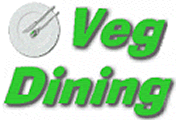
VegDining is excited to announce its "VegDining Around the World" promotion. It's easy to enter ... just visit VegDining.com and submit a mini-review (3 or 4 sentences) about a recent visit you've made to a vegetarian or veg-friendly restaurant or food store. Enter now or in the months ahead. Monthly prizes will be awarded through random draws, including gift certificates to TheVegetarianSite.com and subscriptions to the Vegetarian Resource Group's Vegetarian Journal. The Grand Prize to be drawn after Oct 31, 2014 will be an Apple iPad Mini®.

You may have read in the news recently that inorganic arsenic, a known carcinogen, has been found in most rice and rice-based foods that have been tested by the FDA. The amount, typically a few micrograms per serving, is too small to cause any immediate harm, but the risks of consuming this amount of inorganic arsenic regularly and over the long term have not been determined yet. Consumer Reports, based on their own prior test results, takes the issue very seriously and advises eating only small amounts of rice or rice-based foods. In contrast, most producers of rice and rice-based cereals, snacks, beverages, etc. have downplayed the issued, arguing that many other foods beyond rice (including an array of fruits and vegetables) also contain arsenic, and that there is no evidence that the consumption of such foods is deleterious to one's health. However, the FDA indicates that rice is particularly vulnerable, because it is grown in water and easily takes up arsenic.
At this point, there are no recommendations that we eliminate all rice products from our diets, but it might be sensible to vary our choice in whole grains, cereals, snack foods, etc. Those following a gluten-free diet might be at greater risk, simply because so many gluten-free products today are based on rice flour. And rice-based foods are also very common for infants and toddlers. Concentrating a large part of one's diet on a single food has never been a good idea, and certainly rice is no exception.

Poor iceberg lettuce gets no respect. It may well be the typical hamburger eater's favorite vegetable (other than the french fries with ketchup) and it's certainly the laughingstock of the lettuce world. It is true that a garnish of iceberg is no nutritional powerhouse. That's because it's composed mostly of water, but calorie-for-calorie it stacks up quite well. Used as a base for a good-sized salad, for instance, a couple cups of shredded iceberg (only about 20 calories) contains 45% of the DV (daily value) of Vitamin K, 15% DV Vitamin A, 10% DV folate, 75mg of Omega3 EFAs, and 15mg plant sterols. That's more Vitamin A and Omega3 than the caloric equivalent of broccoli (2/3 cup) and just as much folic acid. We are not for one second suggesting that you eat lettuce instead of broccoli, which is arguably the king of vegetables with its impressive nutritional profile. But yes, iceberg lettuce certainly counts as a legitimate serving of vegetables, provided that you eat a decent amount of it. [Source: USDA SR-21 database]
Superficial dairy industry ads, with clever campaigns such as their "Happy Cows," have led some consumers to hold a false notion that dairy cows are living the good life. But nothing could be further from the truth. Emily Deschanel's new PSA quickly dispels the myths, as she exposes the brutality of this industry. Unfortunately, organic dairy is no solution to the cruelty, a fact that was detailed concisely in Peaceful Prairie Sanctuary's Milk comes from a grieving mother.

If you missed one or more of our recent email newsletters, we've made them available online. Currently available are January 2013, February 2013, and March 2013. We're planning to offer more back-issues too. To subscribe to our e-newsletter, simply send a blank email to subscribe@TheVegetarianSite.com. If there's anything specific that you'd like to see us cover in the future, please do let us know.
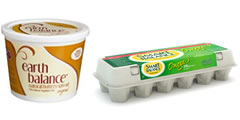
While Walmart surely deserves their current abysmal rating on animal welfare, there are many other companies that continue to fly under the radar. Surprisingly, Earth Balance/Smart Balance -- yes, it's the same company -- seems to have little regard for animal welfare. As verified with a recent call to their customer service department, they are still selling factory farmed Omega-3 specialty eggs, even though this product does not appear on their website. Their egg production is contracted out to Hidden Villa Ranch, a producer that also offers cage-free alternatives. So if they must sell eggs, why does Earth Balance/Smart Balance choose cages instead of going cage-free? Customer service had no immediate answers.

We have a lot to be thankful for this year as more Americans than ever are choosing to celebrate a cruelty-free Thanksgiving. It certainly seems more true and honest to give thanks and to show appreciation for all the good in our lives without causing harm to turkeys or any other animals in the process. Indeed, we can play a particularly positive role by helping, not hurting, these gentle and highly social animals. You can help a turkey too by donating to Farm Sanctuary's Adopt a Turkey Project. Let's turn Thanksgiving into a peaceful, nonviolent holiday for all.

The Atkins Diet may have crashed and burned last decade, but there is a new meat-heavy dietary fad that has been gaining traction over the last couple of years. The Paleo Diet (a.k.a. caveman diet) seeks to take human nutrition back more than 10,000 years to pre-agricultural times in order for us to "regain our health." Does it make sense to formulate the perfect diet plan for today based simply on the very limited food choices available to our ancestors? Hmmm... the Paleo Diet is a low-carb diet, with the bulk of calories coming from meat, fish, and eggs, along with a variety of fruits and vegetables -- some are excluded, if cavemen did not eat them. Also excluded from the diet are all dairy products, all grains, and all beans and legumes. Like the Atkins Diet, the Paleo Diet is an eco-unfriendly and animal-unfriendly diet that can increase demand for animal products in this country if it is adopted by a significant number of consumers.
Proponents assert that this diet is the healthiest of all, because it is the way that nature intended for humans to eat. But at its core, the Paleo Diet is on shaky ground, from both health and anthropological standpoints. Adherents to the diet will benefit in that they'll be steering clear of Dairy Queen and The Cheesecake Factory, and virtually all other modern junk food. However, the Paleo Diet is particularly high in saturated animal fats. Even if one is lucky enough to avoid the cardiovascular health problems often associated with such high animal fat intake, he/she will be ingesting an unusual share of unintended and long-lasting chemical compounds (such as dioxins) stored in the body fat of animals. Coupled with the carcinogenic heterocyclic amines (HCAs) and polycyclic aromatic hydrocarbons (PAHs) produced when cooking meat, that fact is not something to take lightly. In addition, healthy beans and legumes are never consumed on this diet, because proponents insist that legumes are loaded with purported 'natural toxins,' and cavemen did not eat legumes. They are ignoring a most important nutritional study from 2004 in which it was found that high legume intake is the most protective dietary predictor of survival amongst the elderly, regardless of ethnicity (see "Legumes: the most important dietary predictor of survival in older people of different ethnicities," Asia Pacific J. Clin. Nutr. 2004; 13 (2):217-220). Paleo Diet proponents have similar arguments for eschewing whole grains, because our ancestors did not consume them. But wait, yes they did! That was detailed years ago in the highly regarded scientific journal, Nature and elsewhere (see "Processing of wild cereal grains in the Upper Palaeolithic revealed by starch grain analysis," Nature 2004; 430, 670-673). The 'Paleo Diet' -- nice sham, guys.

As we continue to increase our vegan food offerings, we want to keep it real. In fact, TheVegetarianSite.com is the only online vegan superstore to meet the same stringent food standards as Whole Foods Market regarding unacceptable ingredients. (In addition, we guarantee that all ingredients are vegan!) Other vegan stores are selling a number of foods with artificial ingredients, preservatives, trans fats, and/or additives. And most of these unacceptable ingredients were actually tested on animals in order to obtain FDA approval for human consumption. That's definitely something to keep in mind if you strive for a cruelty-free lifestyle.
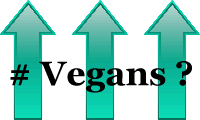
A 2011 Harris Interactive poll commissioned by the Vegetarian Resource Group indicates that approximately 2.5% of Americans are vegan (if "vegan" status is also extended to those who consume honey), compared with a 2009 Harris Interactive poll that gave a result of 2.1%. With the popularity of Meatless Mondays and news from the poultry industry that their sales are down, these results are encouraging, and perhaps the number of vegans in America is growing. A fair number of recent online articles and blogs have stated so by citing the 2011 Harris poll, but in reality the statistical margin of error in this poll is far too large to make such a statement. In 2009, 2397 individuals were polled. Given that sample size, the 2009 figure should read 2.1 +/- 0.6% (at the 95% confidence level, the true percentage falls between 1.5 and 2.7, assuming no systematic errors or biases). In 2011, a significantly smaller number of individuals was polled. Given the sample size of only 1010 individuals, the 2011 figure should read 2.5 +/- 1.0% (at the 95% confidence level, the true percentage likely falls between 1.5 and 3.5). So according to the 2011 poll, the best we can say is that the number of American vegans likely falls somewhere within the wide range of 4.5 and 10.5 million individuals, while the 2009 poll indicated that number fell between 4.5 and 8 million. The good news is that both polls point to quite a large number of vegans. To reduce the margin of error, it would be very helpful -- but also very expensive -- to take a much larger poll of, say, 20,000 individuals. In that case, we would know the percentage to within +/- 0.2%, becauase the margin of error scales as the inverse square root of the sample size. Please contact us if you want the details of our statistical analysis.

The big candy brands, such as Hershey, Nestle, and Mars are not taking responsibility for the unacceptable labor practices of their suppliers. As articulated in a recent article by Kristen Howerton, hundreds of thousands of children in West Africa are enslaved to harvest the cocoa beans that end up in the full array of popular Halloween chocolates, such as Snickers, Reese's Peanut Butter Cups, Butterfingers, M&M's, etc. And non-dairy dark chocolate certainly is not in the clear either. You can avoid supporting child slave labor by choosing Fair Trade chocolate and/or opting for non-chocolate Halloween candies or snacks.
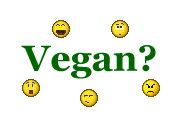
While the vegan lifestyle has become more mainstream in recent years, it's still falsely deemed "extreme" by most. Never let anyone get away with an incident of criticizing you or implying that you're an extremist (or a weirdo) for choosing a lifestyle that reduces the amount of unnecessary suffering in the world. Rather, you know that a meat-centered diet, which inflicts substantial pain and suffering on other beings simply for one's culinary tastes, is an expression of extreme selfishness. So who is the extremist?? OK, it is not advisable to seek out confrontations on the issue, but it's certainly inappropriate for you to allow a critical colleague or acquaintance to indulge in their false notion about veganism just because you prefer to be overly polite or diplomatic. If not for your self-respect, then for the sake of the animals, don't pass up an opportunity to get some of the facts out. And you might suggest that they learn some of these facts by pointing them to http://www.MeatVideo.com/ (warning: the truth is graphic and disturbing) or perhaps to printed literature from Vegan Outreach or elsewhere. You may just plant a seed, or you may not. But you should always feel good about trying. If you don't speak up at all, then the incident is likely to be an affirmation of your critic's uninformed viewpoint, and that's always bad.
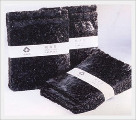
In case you haven't been paying attention to the B12 debate over the last few decades, we should let you know now that virtually all nutritional authorities recommend a reliable synthetic B12 supplement for vegans and for many lacto-ovo vegetarians too. Supposed natural sources of B12, such as spirulina, have been found to contain only B12 analogues (which are inactive), and such analogues may even inhibit one's absorption of true B12. Even the few known non-animal sources of the vitamin, such as certain algae, are not considered to be sufficiently reliable. However, a recent new study of Korean Buddhist vegetarians (The nutritional status of iron, folate, and vitamin B-12 of Buddhist vegetarians, Lee Y, Krawinkel M, et al, Asia Pac J Clin Nutr, 2011) indicates that the consumption of Korean laver, the most commonly consumed seaweed species in Korea, is responsible for healthy B12 serum levels. The authors conclude that Korean laver can be recommended as a good source of B12, because it has been shown to contain substantial levels of true B12.

It has been derided by muscleheads in the past, but soy protein is finally getting its due recognition as a muscle-building powerhouse. Muscle & Body Magazine (Dec. 2010) states that soy protein is 100% equal in lean muscle building as the whey, casein, and egg proteins that are so popular among bodybuilders. "You will gain just as much lean muscle mass from soy protein as any other protein." Dave Hawk, former Mr. USA, Mr. World, and consultant to professional athletes, explains further, "Soy also has no negative effect on testosterone levels. A study by Miami Research Associates found that soy protein (both soy isolate and concentrate) did not decrease blood testosterone levels or prevent men from an increase in lean muscle mass. This study also demonstrated that soy did not increase estrogen levels. This study, like many others, concluded that soy protein builds lean muscle in men and is completely safe. Male athletes and bodybuilders have been force-fed a lot of propaganda from anti-soy interests. But as more studies emerge, findings continue to demonstrate that soy isolate is a superior protein source for both men and women." So whether you like your soy in the form of meat analogs or nutrition bars, your vegan muscles will benefit.
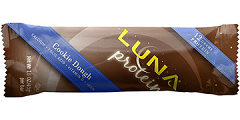
Once upon a time, you could be a confident vegan and buy bars by CLIF without reading labels. But as of late, some product additions have not been quite so vegan-friendly, including dairy and/or honey. The original Clif Bars, original Luna Bars, and Builder's Bars are still safe (and still delicious), as are the new Clif C Bars. However, none of the new Luna Protein Bar flavors is vegan, and be sure to read ingredient labels on each of your favorite flavors of Clif Crunch Bars, Kid Zbars, and Mojo Bars, because some flavors are vegan and some are not. Of course, all the flavors that we sell at TheVegetarianSite.com are vegan, so no need to read labels here.

We wish you the happiest of holidays this year, and we thank you for all your support and for everything you do for the animals all year long! Throughout this 11th holiday season for TheVegetarianSite.com, we are open for business and shipping orders as usual.

Gearing up for this holiday season, but on a budget? No worries, just take a look at our suggested list of vegan gifts, all under $30, from vegetarian message t-shirts, to non-leather accessories, to chocolate gift boxes, and everything in between. And if you don't see what you need there, please visit our online vegan store front for hundreds of other ideas.

From breakfast cereals to dinner entrees, we now have over 40 gluten-free options in the new Gluten-Free subsection of our Vegan Foods section. Do you have a favorite gluten-free item that we don't yet carry in our online store? Let us know at shopping@TheVegetarianSite.com.
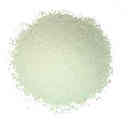
The Truvia brand of sweetener, derived from stevia and produced by agribusiness giant Cargill, has been added to the list of brands that were tested on animals. In order to secure GRAS (Generally Recognized As Safe) status from the FDA, Cargill revealed that they submitted a number of safety studies on this product, including an animal study using rats. Their Truvia sweetener is now widely available in supermarkets nationwide. In addition, Coca Cola partners with Cargill and uses Truvia to sweeten some of its diet soft drinks and Odwalla juices.
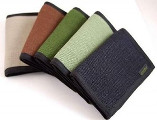
We're happy to report that ModernHippieMag.com posted a very nice review of our high-quality hemp wallets a few days ago. These wallets are eco-friendly, vegan, sweatshop-free, and durable too. What else could you want in a wallet? Read the review.

In addition to the "major four" (Mastercard, Visa, American Express, and Discover) you now also have the option to use your Diners Club credit card at our online vegan store.
Yes, we have a brand new Twitter account. So if you're interested in keeping up to date on everything from veg-related news to special 24-Hour Sales at our online store, just follow us on Twitter.
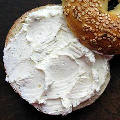
Trans fats are widely known to be even more detrimental to human health than the saturated fat in pure animal lard or butterfat. That's why trans fats have been banned in some US cities. So a visit to the Tofutti.com website is a rather surreal experience. Under their Products section, you can read about their Better Than Cream Cheese product, where they state among other things, "Now, you have a healthy alternative that contains no dairy! The Better for you Cream Cheese!" But read the product label online and you'll find that the second ingredient (after water) is partially hydrogenated soybean oil, which is loaded with trans fat. However, you wouldn't know it by their online nutritional label, which shows 0 grams of trans fat per 2 tablespoon serving! Just what is going on here? We wanted to find out, so we contacted them by telephone a couple of years ago. We were told that, yes, 6 of their 7 cream cheese substitute products do contain trans fats, and that the 0 grams shown on their website site is incorrect. They made very clear that they were aware of the "problem." We contacted them again this year and received a similar statement. So is Tofutti purposely deceiving the public into believing that this very unhealthy product of theirs is actually healthy? Maybe they're confusing the supermarkets as well: Some mainstream stores, such as Safeway, display this trans fat-laden product in their special natural foods section! Trader Joe's carries it too. Perhaps Tofutti needs many more phone calls from the public -- or a call from the FDA -- to make the website change. Tofutti's annual revenues are close to $20 Million, so they certainly should have the resources to make some quick website corrections, if it's really just a mistake. Right?

We've been receiving a steady stream of excellent quotes for our 2010 Vegetarian Quote Contest, including entries from a number of well-known figures in the vegan and animal rights movement. But don't let that deter you from entering! It's the quote that matters, not the prominence of the individual who created it. One thing is for sure: it's already obvious to us that choosing the winners is going to be a more difficult task than we anticipated.
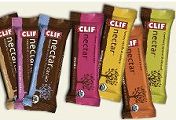
Clif Bar has pulled the plug on its Clif Nectar Bar line of vegan fruit & nut bars. According to the company, these bars started out strong a number of years ago -- they even won a Top Pick award from Health.com -- but sales have been fading for a while. We still have some flavors in stock, so rush over to our online store if you like these bars!
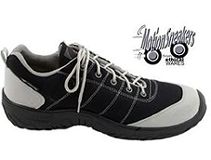
We just heard the bad news from Ethical Wares that the Italian sneaker factory that makes their high quality men's and women's Motion Sneakers has shut down. Ethical Wares had contracted with that fair labor factory for 15 years. Committed to ethically made footwear, they are currently searching for another European factory to produce all their sneakers. The prevalence of high-volume, low-wage Chinese sneaker factories, used by many brands that masquerade as socially responsible or forward thinking (such as Simple, Macbeth, IPath, People's Shoe, and others) has taken its toll on fair labor factories worldwide.
If you're already subscribed, but you didn't receive our May 2010 email newsletter, then you probably need to give us a different email address. According to Website Magazine, only 77% of bona fide email newsletters actually reach their intended destination. 7% end up in bulk/spam folders and 16% are blocked by overzealous (or overwhelmed) email service providers. That's not a real surprise given the enormous amount of unsolicited junk email that is constantly bombarding all of us. Do you have a Yahoo.com or Hotmail.com email address? Both have occasionally given us some trouble in the past, as have some smaller providers. Whatever the case, check your bulk/spam folder. If our newsletter appears there, make sure you label it as 'not spam' and also add us to your friends list. That way our next newsletter should go directly to your inbox. But if there is no sign at all of our May 2010 newsletter, the only solution may be for you to offer us a different email address of yours altogether. Just send it to: subscribe@TheVegetarianSite.com. Our privacy policy is very simple: We will never sell, trade, or give your email address to anyone. And if you're not yet familiar with our newsletter, it offers recipes, news articles, upcoming events info, special features, new products offerings, and sale updates. Subscribe today, it's free!

Is there any better hot weather treat than a cold bowl of sweet vegan ice cream? Whether you like vanilla or Fair Trade chocolate, stock up on your Temptation vegan home ice cream mix so that you'll have it when you need it. Quick and easy with absolutely no cooking required. All you need is your blender and home ice cream maker. Visit our online store for more info.
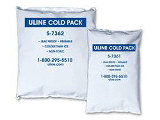
We've had a few customers ask why we don't offer cold/ice packs for shipping food orders. As an eco-friendly company, we have made the conscious choice not to use these disposable packs. Although they're dirt cheap these days (a case of 96 3-oz. units is $22 at ULINE), these chemical-gel refrigerant packs quickly end up in the landfill. As an obvious corollary to this eco-philosophy, we have chosen not to stock any commercial foods that would require continuous energy for their refrigeration. Instead, all food items that we stock are shelf stable at room temperature.
Copyright © 2010-2017 The Vegetarian Site, All Rights Reserved.